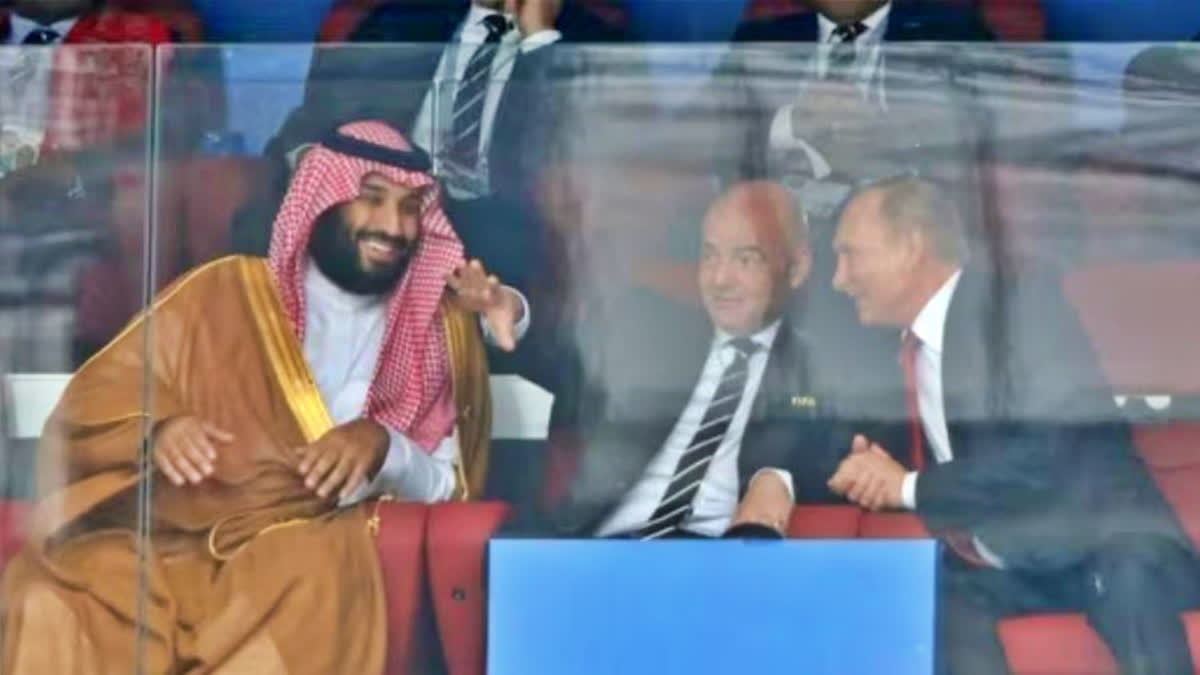New Delhi: With Saudi Arabia reportedly expressing interest in buying a sizeable stake in the lucrative Indian Premier League (IPL), the question arises as to whether it will lead to the corporatisation of cricket in India and help the Gulf kingdom in further boosting its "sports-washing" activities.
According to reports, when Saudi Arabia’s Crown Prince Mohammed Bin Salman visited India in September, his advisers held talks with Indian officials to explore the possibility of turning the Board of Control for Cricket in India (BCCI) into a holding company worth $30 billion.
The BCCI is registered as a charitable organisation and its income is exempt from tax, subject to the fulfilment of conditions imposed under the Income Tax Act of 1961. The issue of taxing the income of BCCI was taken up by the tax authorities who sought to revoke the exemption granted to the cricket board. Whenever the receipts exceed the threshold for a charitable trust, BCCI has to pay taxes for those years.
This is something that has to be done every year, but that doesn’t take away its right of being called a charitable trust. So, BCCI has been allowed to remain as a charitable organisation. Now, according to the reports, Saudi Arabia is seeking to invest up to $5 billion in the IPL. If the proposal goes through, this might well be the first time that there will be foreign direct investment in the Indian sports industry.
The IPL’s popularity can be gauged from the fact that bidders last year pumped in $6.2 billion for the right to telecast the T20 cricket extravaganza, which comes to $15.1 million per match. This is more than the English Premier League and just behind the US’ National Football League.
“It is known for quite some time now that the Saudis see India as a partner in economic development and a vital factor in regional stability,” a former Indian diplomat who served in West Asia, told ETV Bharat on the condition of anonymity. “They have been on the lookout for big-ticket investments in India and the IPL may meet their investment models with little gestation period and steady returns.”
According to the former diplomat, if Saudi Arabia invests in the IPL, India will have to come up with a new investment policy. The Indian government and the BCCI will reportedly take a call on this proposal after the general elections to be held next year.
“It should not have any impact on India’s sovereignty in the sporting world,” the former diplomat said. “The Saudis cannot tell BCCI to take players from Pakistan in the IPL auction. Questions may also remain whether India will allow the Saudis’ IPL income from BCCI to leave the country tax-free as BCCI revenues are entitled to tax exemption in India. All in all, the matter seems to warrant a high state policy review.”
The former diplomat also pointed out that a stake in IPL comes with added soft power, prestige and profile in the cricket-playing world. And this is where the catch lies. Will India, by allowing the Saudis to invest in the IPL, help the Gulf kingdom further boost its sports-washing activities?
